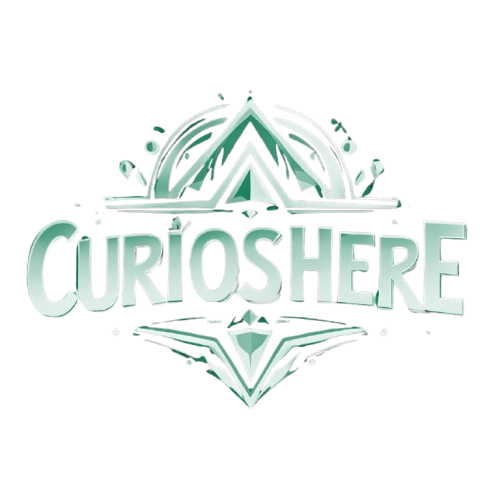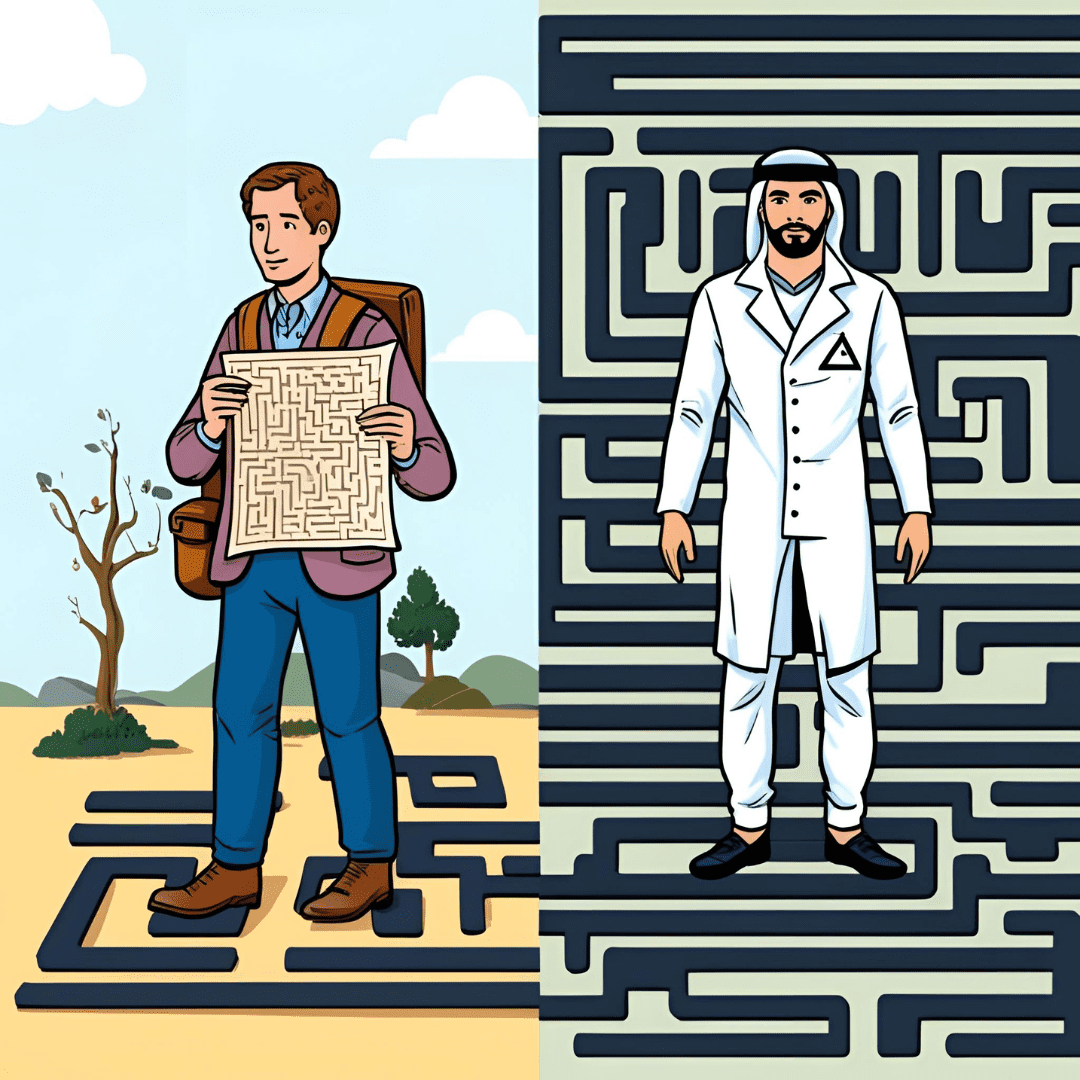When we think about computers, we usually imagine powerful machines that process information at high speeds. But what happens when we compare two very different types of computers? On one side, we have classical computers, which we use every day, and on the other, we have quantum computers, which are revolutionizing the future of computing. But how can we understand the differences between them in a fun and accessible way?
One of the best ways to explain these differences is by using real-world analogies. Let’s imagine that both classical and quantum computers are trying to solve a maze. How would each one behave? Let’s find out!
The Classical Computer: The Traditional Explorer
Let’s start with the classical computer. Imagine an explorer in a maze. He starts at an entry point, and according to the maze’s rules, he has to follow a path until he finds the exit. This explorer can only follow one path at a time. If he hits a dead end, he must turn back and try another route.
The classical computer works similarly. It processes information sequentially, meaning it does one thing at a time, just like the explorer moving from one room to the next. If it encounters a roadblock (a problem or difficulty), it needs to try a different solution. It gets to the exit, but always testing paths one by one, which can be slow, especially in highly complex mazes.
The Quantum Computer: The Multitasking Explorer
Now, imagine a quantum explorer facing the same maze. But unlike the traditional explorer, he has a special ability: he can explore all paths in the maze at once. How can he do this? This is where superposition comes in. The quantum explorer doesn’t limit himself to one path but instead “splits” into several versions of himself, each exploring different possibilities simultaneously.
This behavior is similar to how qubits work in quantum computers. Instead of using bits, which can be 0 or 1, qubits can be in multiple states at once. This allows the quantum computer to explore many solutions simultaneously. When the quantum explorer hits a dead end, he simply moves on to another path, without wasting time, since he’s exploring all paths simultaneously.
Because of this ability for superposition, the quantum computer can solve complex problems much faster than a classical computer. In a maze with many possible routes, the quantum computer can find the exit in a fraction of the time it would take a classical computer to do so.
The Effect of Quantum Entanglement
But there’s another ability the quantum explorer has: quantum entanglement. Imagine that while he’s exploring the maze, he has several friends scattered throughout the maze, each exploring different areas. If he discovers something important, like a false wall or a secret passage, he can instantly share that information with his friends, no matter how far apart they are.
Quantum entanglement works similarly. When two qubits are entangled, they become connected in such a way that the state of one qubit can instantly affect the state of the other. This allows quantum computers to perform calculations in a highly parallelized and efficient manner.
In the maze context, this effect would allow the different quantum explorers to work together to solve the problem more quickly and efficiently, as if they were telepathically exchanging information.
Comparing Performances: Which Explorer Reaches the End First?
If we set the classical explorer and the quantum explorer to solve the same maze, the classical explorer would have to test each path one by one until he finds the exit. This could take a long time, especially in mazes with many, many routes.
On the other hand, the quantum explorer would already be exploring all the paths at once, drastically reducing the time it takes to find the solution. In a simple maze, there might not be much difference, but in complex mazes with thousands or millions of options, the time difference would be huge.
Is the Future Here? Common Questions for Quantum Computing Beginners
It’s natural to have many questions about something so innovative. Here are some of the most frequent doubts for those starting to understand the quantum world:
- Will I have a quantum computer at home soon?
- No, at least not in the near future. Quantum computers are extremely complex, large, expensive machines that operate at temperatures very close to absolute zero (colder than space). They’re not designed for everyday tasks like Browse the internet or gaming. Your classical smartphone and laptop will remain the ideal tools for those purposes.
- Will quantum computers replace classical ones?
- No, they will complement them. As seen in the analogy, the classical computer excels at sequential tasks and well-defined problems that require speed. The quantum computer shines in complex optimization problems, molecular simulation, advanced cryptography, and artificial intelligence that are infeasible for classical computers. They will work side-by-side, with the classical one managing general operations and the quantum one handling the specific “super-tasks.”
The Future: Where Classical and Quantum Computers Meet
While quantum computers have huge potential, that doesn’t mean classical computers will disappear. In fact, they’re extremely effective for many everyday tasks, like Browse the internet, playing video games, or doing simple calculations. However, for complex problems, such as simulating molecules for drug discoveries, optimizing delivery routes for entire fleets, or making long-term climate predictions, quantum computers have the potential to transform these fields radically.
In other words, classical and quantum computers can and will work together. Classical computers can handle simple and fast tasks, while quantum computers can focus on the more complicated and time-consuming problems. This hybrid collaboration is seen as the path forward for the future of computing.
The Future Is Coming!
The comparison between classical and quantum computers helps us understand how each can be useful in different situations. While classical computers do an excellent job solving simple problems quickly, quantum computers are ideal for exploring complex problems and finding solutions incredibly efficiently.
As quantum computing continues to develop, it promises to not only complement classical computers but also open up new possibilities in fields like medicine, security (especially in breaking current encryption and creating new forms), artificial intelligence (with more powerful machine learning algorithms), and even space exploration (optimizing trajectories and material design). We’re just at the beginning of this exciting journey!







